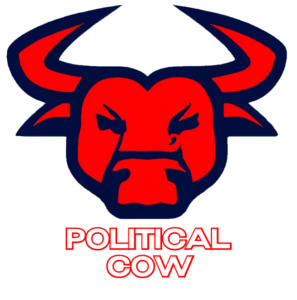https://www.youtube.com/watch?v=b28y2OWiDKM
➡️ Guest call in
☎️ https://go.politicalcow.com/Live ☎️
➡️ Join this channel NOW! 🐄 ⬅️
✅ https://www.youtube.com/channel/UCG6pDaj42pp0JepuPiKoYCQ/join ✅
🚨📰 GROUND NEWS 40% off! 📰🚨
✅ https://check.ground.news/PoliticalCow ✅
📱 [Follow Us]
🔸 🌲: https://linktr.ee/PoliticalCow
🔸 Web: https://politicalcow.com
🔸 YT: https://youtube.com/@RealPoliticalCow
🔸 TT: https://tiktok.com/@Politicalcow
🔸 X: https://x.com/PoliticalCow
🚨 [Disclaimer]
The information provided in this video is for educational, informational and entertainment purposes only. We are not financial advisors, and all investment decisions should be made with professional guidance. Affiliate links help support our channel at no additional cost to you. Thank you for your support! Also, please note that some thumbnail images are in fact AI generated for satirical purposes and we work to label them as such.
#Politics #Finance #Investments #satire
Thank you for watching!


